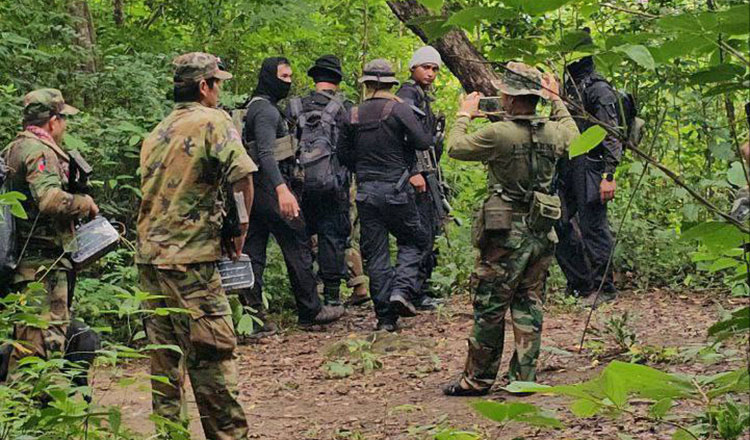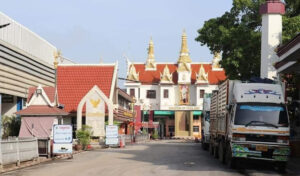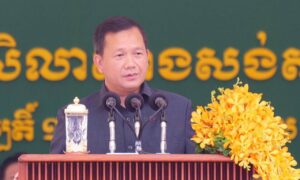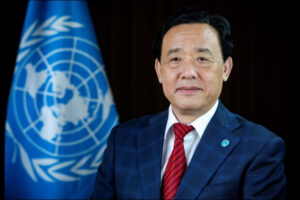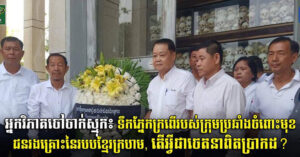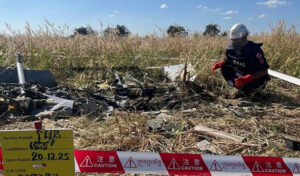Opinion: No More Childish Games: Time for Thailand to Face the Truth on Cambodia’s Border
Khmer Times | Amid recent tensions along the Cambodia–Thailand border, the Thai government has once again chosen to engage in finger-pointing rather than fact-finding. Its latest bad will accusations—alleging that Cambodia violated the Ottawa Convention by laying new landmines—are not only baseless but dangerously provocative. To understand what is really happening, we must ask the right questions and hold Thailand accountable for its own actions.
Whose Land? Whose Responsibility?
Thailand claims that Cambodian soldiers planted new landmines that allegedly injured Thai soldiers. But one essential question remains unanswered: Where exactly did this incident take place? Was it inside Thai territory? Inside Cambodian territory? Or—most critically—was it within an area where the border has yet to be officially demarcated?
If the explosion occurred in an undemarcated zone, then the Thai government cannot unilaterally declare a violation of the Ottawa Convention without first establishing ownership of the land. That question—of where sovereignty begins and ends—has not yet been resolved. Making accusations before borders are legally and mutually agreed upon is not only irresponsible but escalatory.
Double Standards on the 2000 MoU
Thailand also claims Cambodia has violated the 2000 Memorandum of Understanding (MoU) by allegedly laying mines in disputed territory. But is Thailand itself adhering to the same agreement?
We must ask: Why are Thai troops freely moving deep into undemarcated zones—sometimes up to the edge of Cambodian military positions—if these are areas where no unilateral military activity should occur? If Cambodia were to do the same, would Thailand accept it without protest?
Furthermore, one must question Thailand’s real intentions when it seeks to portray certain access points—such as the Lahok border area—as “unguarded” by Cambodian troops. Is this an attempt to create a vacuum and justify a unilateral presence? This reveals a dangerous mindset that contradicts the very spirit of bilateral cooperation and mutual restraint enshrined in the MoU.
Dialogue or Deception?
Thailand repeatedly says it wants to resolve issues through peaceful, bilateral dialogue. But what kind of dialogue begins with public accusations, media leaks, and diplomatic provocations—without prior notification or consultation with the Cambodian side?
If Thailand truly values dialogue, why didn’t it inform Cambodia in advance or request a joint investigation into the landmine incident? Why rush to the media instead of to the table? These are not the actions of a partner seeking peace, but of a neighbor playing politics.
CMAA’s Response: A Call for Responsibility and Legal Resolution
The Cambodian Mine Action and Victim Assistance Authority (CMAA) has already categorically rejected the false allegations made by Thailand. Cambodia remains fully committed to the Ottawa Convention and has never authorized the planting of new landmines. The Thai narrative is a dangerous distortion aimed at deflecting attention from its own provocative military movements.
If Thailand truly wishes to clarify the border, Cambodia has a simple and fair solution: Let us go to the International Court of Justice (ICJ).
This is the only neutral, internationally recognized mechanism capable of resolving undemarcated border disputes based on evidence, not emotion. If Thailand believes in justice and international law, why hesitate?
The Ball Is in Thailand’s Court
Cambodia remains committed to peace, cooperation, and international law. But we will not allow ourselves to be bullied, blamed, or baited into silence. Thailand must choose: provocation or partnership? Hysterical accusations or honest arbitration?
The facts are clear. The path to peace is open. It is Thailand that must now decide whether it wishes to walk it—or mine it.
While Thailand persists in spreading lies, distorting facts, and manipulating narratives against Cambodia, these tactics are nothing more than outdated attempts to evade the truth, flout international law, and conceal its underlying ambition to encroach upon Cambodian territory. The international community—along with both the Cambodian and Thai people—can see through these desperate maneuvers. It is time for Thailand to abandon these petty and provocative games, confront reality, and act as a responsible and respectful neighbor.
Roth Santepheap is a geopolitical analyst based in Phnom Penh. The views expressed are his own.

